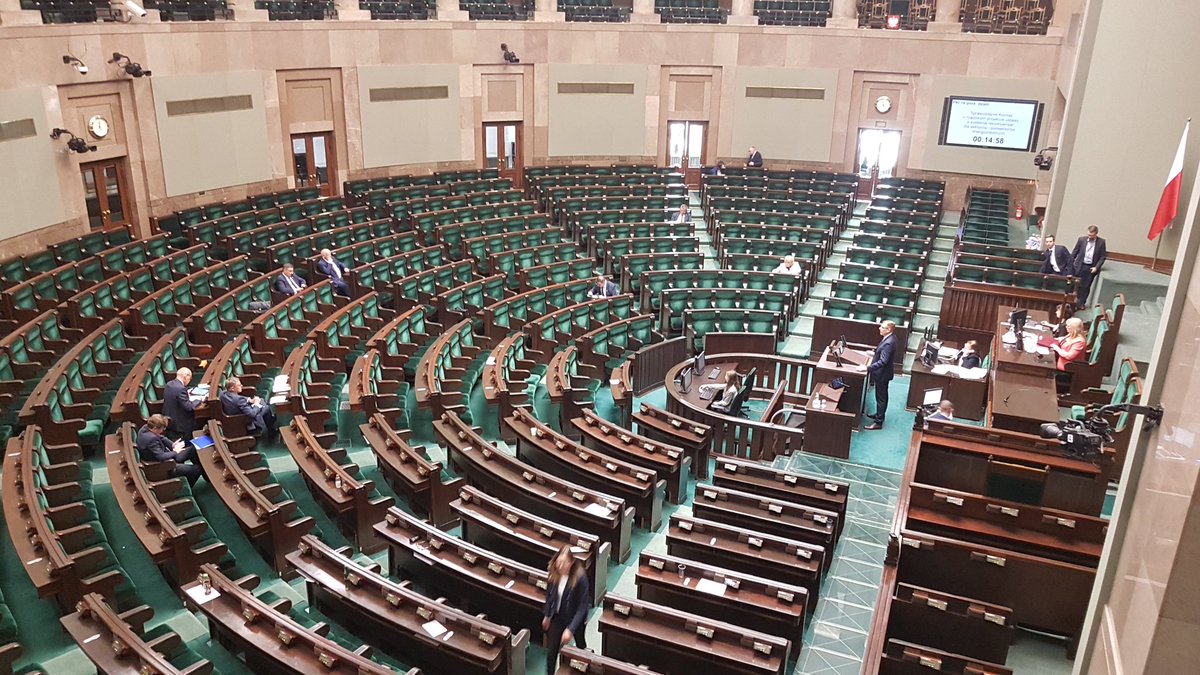The coalition talks on forming a new government are interesting not because of the bargaining over who will get the ministry of energy, but because of the decision on who will get Orlen, which has become a powerhouse stronger than many ministries – writes Wojciech Jakóbik, editor-in-chief at BiznesAlert.pl.
The final results of the parliamentary elections show that Law and Justice won (more than 35 percent of the vote), but the majority of the Sejm is held by the opposition bloc with the Civic Coalition (about 30 percent), the Third Way (14 percent) and the New Left (8 percent). The Confederation also managed to win some seats in the Sejm (7 percent). The ruling party is expected to win 194 seats, Civic Coalition – 157, Third Way – 65, New Left – 26, Confederation – 18. Talks on the forming a new government have already started. The president will decide to whom to entrust this task. Speculation continues as to whether he will start with a representative of the winning party, or bet on the parliamentary majority. Political negotiations are underway to form a new governing coalition. The bargaining is about the distribution of positions in the government and state-owned companies.
Law and Justice initially hoped for a stronger victory, and therefore expected it would have to recruit several dozen deputies from other parties to create a stable parliamentary majority. The result of 194 seats means that a simple majority of 231 votes is missing dozens of sabers. Thus, the original plan, which could entail the involvement of members of the Polish People’s Party (PSL), a party with a conservative worldview and historically known for the ability to be able to form coalitions, became questionable. This plan could take into account the division of forces in the energy sector, and even the admission of a representative of PSL to manage Orlen. Interestingly, the former prime minister from PSL Waldemar Pawlak received a senator’s mandate…in Płock, near the Płock Orlen refinery.
However, the coalition talks may include bargaining over who will take the ministry responsible for energy (Civic Coalition wants a ministry of transition) and who will grab the Orlen CEO position, which is he biggest company in Poland and the region with significant impact on climate and energy policy, as it has numerous assets that process raw materials, generate energy, gas and fuels. After acquiring LOTOS and PGNiG, Orlen has become an important powerhouse in the sector with more impact than many a state official. However, it is not known whether the coalition agreement will include another separation of PGNiG, a gas company that imports gas via the LNG termnal in Świnoujście and the Baltic Pipe. This is a way to implement the demand of the Civic Coalition on the one hand, as well as to create again more positions to be divided between the coalition memers on the other. It would be much more difficult to reverse the merger with LOTOS, which has already integrated a lot deeper with the organization.
As always, a new deal is an opportunity for reform. Energy management is to be more efficient. For eight years, the one-party government has not saved the energy sector from the war of ministries known from the time of disputes between the ministries of economy and the state treasury before 2015. This divide was especially revealed during the impasse over shale gas and it was the reason why Poles missed the boom for its search. However, the ministries of state assets and climate were often equally at odds, even though their heads came from the same political camp. A step back was the Ministry of Energy, which concentrated regulatory and ownership powers in the energy sector, but which was accused of serving the interests of the sector instead of imposing restrictions on it. The new solution must also respond to this risk.
The new majority and the new government should ensure a sound institutional basis for the state’s energy and climate policy, while respecting the ownership division as stipulated by EU legislation. One minister cannot manage the transmission and supply of energy and raw materials. Therefore, in the current government, the position of the Plenipotentiary for Strategic Energy Infrastructure was created. In the face of the growing threats to western critical infrastructure, and on the occasion of political bargaining, perhaps it is worth to ensure that such a position or an analogous one exists, and perhaps it should be extended to encompass infrastructure so that at least a fragment of the energy sector is protected from ad hoc political disputes in order to ensure its security? There will still be time for this, because the autumn begins with negotiations that may end in a deal: you take the ministry of energy, and we take Orlen.









